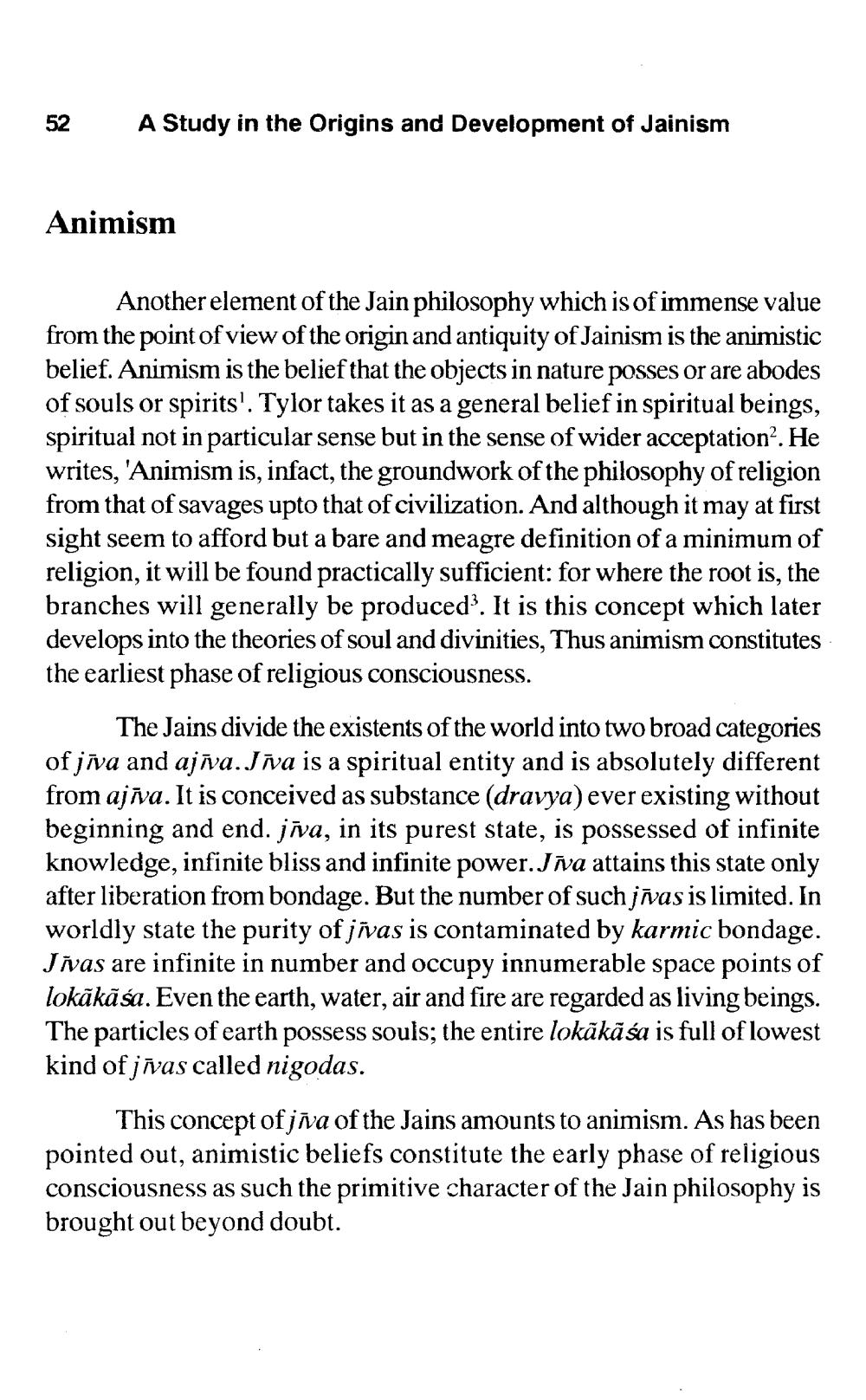________________
52
A Study in the Origins and Development of Jainism
Animism
Another element of the Jain philosophy which is of immense value from the point of view of the origin and antiquity of Jainism is the animistic belief. Animism is the belief that the objects in nature posses or are abodes of souls or spirits'. Tylor takes it as a general belief in spiritual beings, spiritual not in particular sense but in the sense of wider acceptation2. He writes, 'Animism is, infact, the groundwork of the philosophy of religion from that of savages upto that of civilization. And although it may at first sight seem to afford but a bare and meagre definition of a minimum of religion, it will be found practically sufficient: for where the root is, the branches will generally be produced3. It is this concept which later develops into the theories of soul and divinities, Thus animism constitutes the earliest phase of religious consciousness.
The Jains divide the existents of the world into two broad categories of jīva and ajīva. Jīva is a spiritual entity and is absolutely different from ajīva. It is conceived as substance (dravya) ever existing without beginning and end. jīva, in its purest state, is possessed of infinite knowledge, infinite bliss and infinite power. Jīva attains this state only after liberation from bondage. But the number of such jīvas is limited. In worldly state the purity of jivas is contaminated by karmic bondage. Jivas are infinite in number and occupy innumerable space points of lokākāśa. Even the earth, water, air and fire are regarded as living beings. The particles of earth possess souls; the entire lokākāśa is full of lowest kind of jivas called nigodas.
This concept of jiva of the Jains amounts to animism. As has been pointed out, animistic beliefs constitute the early phase of religious consciousness as such the primitive character of the Jain philosophy is brought out beyond doubt.




